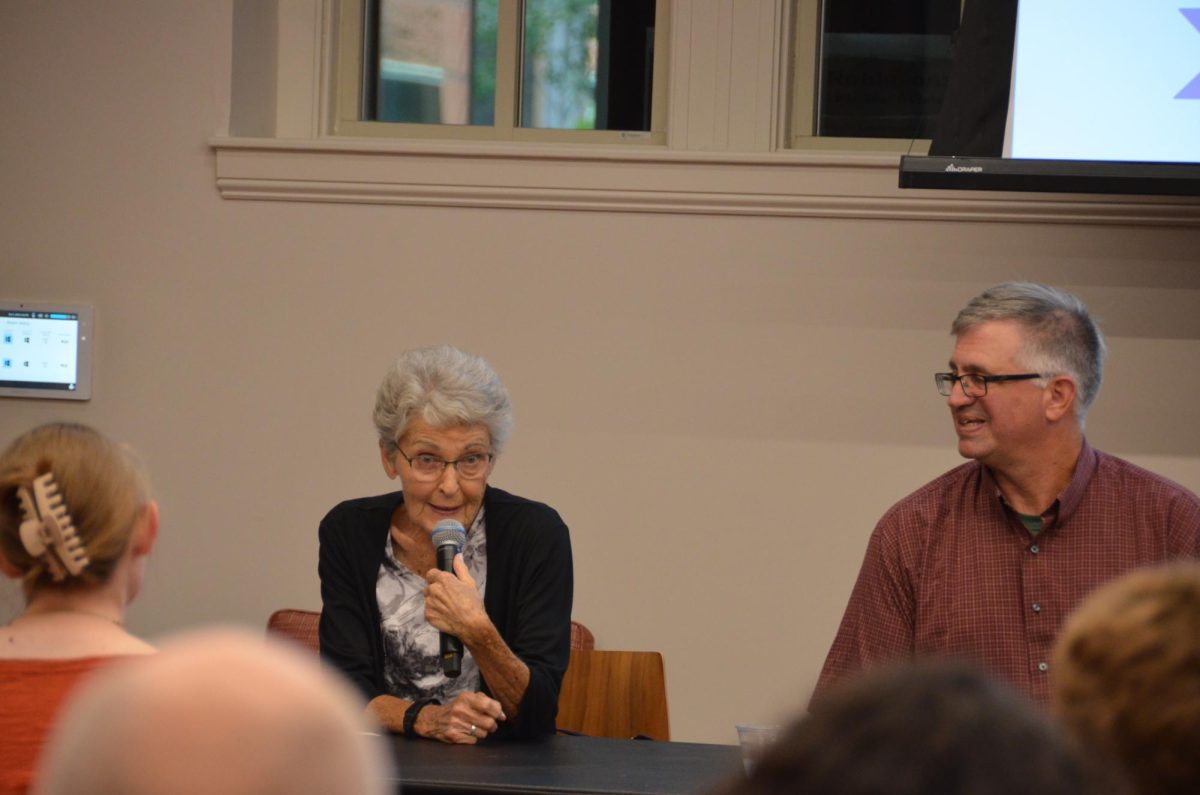A panel of local farmers came to Grinnell College to discuss the Farm Bill, a federal spending bill that divides nearly half a trillion dollars among various aspects of agriculture, including nutrition, conservation, commodities and crop insurance. The event was a stop on the Fair Farm Bill Roadshow, which seeks to gather support for the representation of small farmers in the next bill.
Every five years, the sitting President of the United States is expected to sign a new Farm Bill into law, but the 2018 Farm Bill expired on Sept. 30, with no new bill currently in place.
Further, a government shutdown would stop any progress of a new Farm Bill. Iowa Senator Chuck Grassley said that the most likely scenario would be an extension of the current Farm Bill.
According to Tommy Hexter `21, who serves as a Rural Organizer for the Iowa Farmers Union and moderated the panel at the College on Tuesday, Oct. 3, the current Bill from 2018 is not enough. Hexter said that local farmers want to see the implementation of a competition title in the next Farm Bill, which would restrict monopolies and corporate consolidation.
“What we’ve seen in every industry is that the top 0.00001 percent gets wealthier, and everybody else is losing, and that’s the same in agriculture,” Hexter said.
“If you’re growing corn, you have to buy the seed from one company in order to be able to sell your corn into certain markets,” he added, describing the anti-competitive market that faces small family farmers. Hexter said only a few companies, like Bayer-Monsanto, “control the top 80% of the corn seed market.”
Panelist Aaron Lehman, a fifth-generation Polk County farmer and president of the Iowa Farmers Union, echoed Hexter’s comments, saying, “Without the competition side, it doesn’t help farmers. It doesn’t help consumers. And it leads to an unhealthy system for years and years to come unless we work on actually trying to deal with it right now.”
Michaelyn Mankel, who works for the national non-profit Food & Water Watch, agreed with Hexter. She said that a reinvigoration of the Packers and Stockyards Act, which was enacted in 1921, would help limit anti-competitive business practices in the agricultural industry. The Packers and Stockyards Act regulates the agriculture industry ensure fair competition in the industry. Mankel described some of these practices by major meat-packing corporations as “deceptive, fraudulent and abusive.”
Many panelists agreed that under the current Farm Bill and other agriculture-related legislation, factory farms and large industrial commodity producers benefit from conservation measures intended to help smaller family farms. Farmer Suzanne Castello `87, who operates a farm just outside of Grinnell with her husband Barney Bahrenfuse, said that her farm can receive conservation penalties for tilling soil but no penalties exist for using pesticides, herbicides or fungicides. Castello said that 90 percent of all cover crops are eventually killed with the herbicide Roundup, produced by Monsanto.
Donna Winburn, who lives in Grinnell but farms in central Poweshiek County, said that she wants to see greater carbon credit rewards, which certify carbon emission reductions, for small conservation-minded farms like her own.
Lehman and Mike Phillips, a farmer in southern Poweshiek County, both agreed that an equally important issue is the future of farming itself. “For every farmer who is younger than 35 years old, there are four that are over 65. We are not preparing ourselves for a sustainable system, ecologically, economically and for the intergenerational piece of it,” Lehman said. Lehman added that the average age of a farmer in Iowa is 57 years old.
Phillips said that he wants to see the new Farm Bill have greater subsidies for young farmers, especially loan programs to offset the rising real estate costs. “We’re desperate,” Bahrenfuse said. “When my wife used to teach economics, she had many people who wanted to farm and saw no way they could do it.”
For these local farmers, the future of farming lies both with the passing of a new Farm Bill and with more young farmers getting started.
“You have to make sure that the programs that get funded in these big omnibus bills are actually benefitting the people that they’re intended to, and not just the ones with the biggest lobbying,” Hexter said, summarizing the goal of the roadshow.
As of right now, no new bill exists, and the roadshow farmers will continue to travel around the state of Iowa, drumming up support for a new bill.






















































